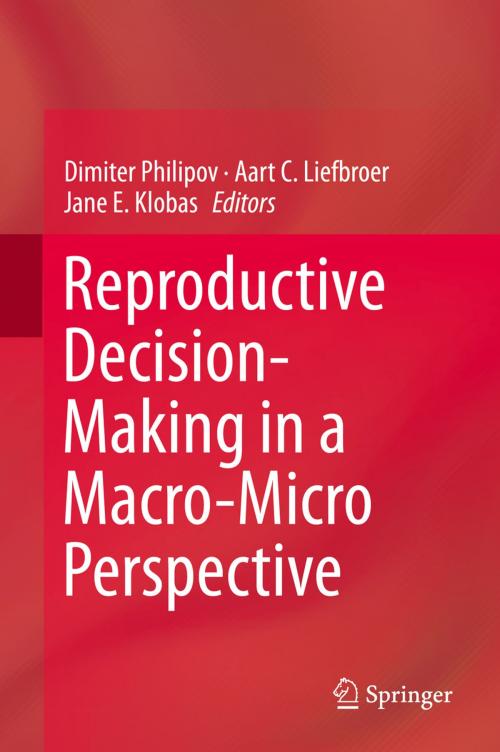Reproductive Decision-Making in a Macro-Micro Perspective
Nonfiction, Social & Cultural Studies, Social Science, Demography, Sociology| Author: | ISBN: | 9789401794015 | |
| Publisher: | Springer Netherlands | Publication: | October 17, 2014 |
| Imprint: | Springer | Language: | English |
| Author: | |
| ISBN: | 9789401794015 |
| Publisher: | Springer Netherlands |
| Publication: | October 17, 2014 |
| Imprint: | Springer |
| Language: | English |
This book provides new insights into the significant gap that currently exists between desired and actual fertility in Europe. It examines how people make decisions about having children and demonstrates how the macro-level environment affects micro-level decision-making.
Written by an international team of leading demographers and psychologists, the book presents the theoretical and methodological developments of a three-year, European Commission-funded project named REPRO (Reproductive Decision-Making in a Macro-Micro Perspective). It also provides an overview of the research conducted by REPRO researchers both during and after the project.
The book examines fertility intentions from quantitative and qualitative perspectives, demonstrates how the macro-level environment affects micro-level decision-making, and offers a multi-level analysis of fertility-related norms across Europe.
Overall, this book offers insight into how people make decisions to have children, when they are most likely to act on their decisions, and how different social and policy settings affect their decisions and actions. It will appeal to researchers, graduate students, and policy advisors with an interest in fertility, demography, and life-course decision making.
This book provides new insights into the significant gap that currently exists between desired and actual fertility in Europe. It examines how people make decisions about having children and demonstrates how the macro-level environment affects micro-level decision-making.
Written by an international team of leading demographers and psychologists, the book presents the theoretical and methodological developments of a three-year, European Commission-funded project named REPRO (Reproductive Decision-Making in a Macro-Micro Perspective). It also provides an overview of the research conducted by REPRO researchers both during and after the project.
The book examines fertility intentions from quantitative and qualitative perspectives, demonstrates how the macro-level environment affects micro-level decision-making, and offers a multi-level analysis of fertility-related norms across Europe.
Overall, this book offers insight into how people make decisions to have children, when they are most likely to act on their decisions, and how different social and policy settings affect their decisions and actions. It will appeal to researchers, graduate students, and policy advisors with an interest in fertility, demography, and life-course decision making.















